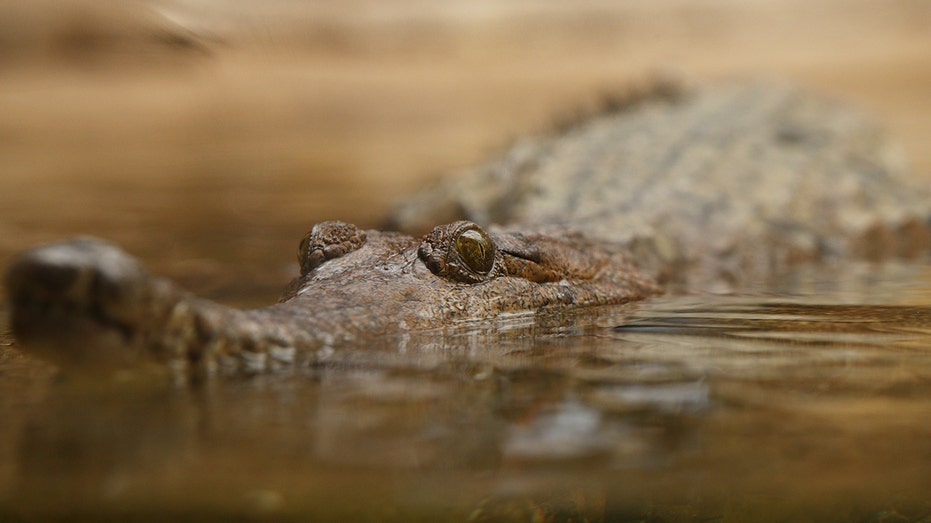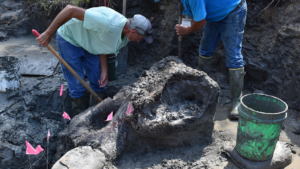
Innovative Approach to Save Australia’s Freshwater Crocodiles from Toxic Invasive Toads
In Australia, a team of dedicated researchers is tackling the alarming decline of freshwater crocodiles, a species severely threatened by the ingestion of toxic invasive toads. Their unique solution involves a rather unappealing method aimed at ensuring the survival of these apex predators.
The Toxic Threat: Cane Toads
The invasive cane toad, introduced to Australia from Hawaii in 1935 as a misguided pest control strategy, has since proliferated across tropical regions of the continent. These amphibians are notably toxic, and their consumption by freshwater crocodiles (Crocodylus johnstoni) has resulted in devastating consequences, including a staggering decline of over 70% in some populations.
A Nausea-Inducing Solution
Researchers devised a clever baiting technique to deter crocodiles from consuming these harmful toads. They utilized carcasses of dead cane toads, from which the toxins had been removed, and infused them with a nausea-inducing chemical. This method, outlined in a recent study published by the Royal Society Publishing, aims to condition the crocodiles to associate the taste of toads with unpleasant experiences.
Understanding the Impact of Cane Toads
“It’s not pretty. They go into seizures, and death is fairly quick and probably very painful because it’s essentially a massive cardiac arrest,” explains Georgia Ward-Fear, a conservation scientist at Macquarie University. The effects of cane toad poisoning on crocodiles are severe, often leading to large hemorrhages and a range of distressing symptoms, including paralysis and impaired coordination.
Successful Implementation of the Baiting Strategy
In 2021, scientists distributed nearly 2,400 cane toad carcasses laced with the nausea-inducing agent in key habitats across northwest Australia. The results were promising; crocodiles quickly learned to avoid the toxic toads while continuing to consume non-toxic bait, such as chicken. The ongoing application of this baiting technique has demonstrated a significant positive impact on crocodile survival rates.
Conservation Efforts Paying Off
The researchers reported that the taste aversion strategy capitalizes on the natural ability of animals to avoid food that causes nausea. “Crocodiles with toads in their stomachs often exhibited extreme symptoms, such as vigorous seizures and unresponsiveness,” the study noted. Tragically, no crocodiles affected by cane toad poisoning were successfully rescued.
To mitigate the risk of crocodiles becoming overly sick from the bait, the scientists carefully spaced out the distribution of the toad carcasses. The results have been overwhelmingly positive, with crocodile mortality rates in the affected regions reduced by as much as 95%. “It was a huge success,” Ward-Fear stated, noting that Indigenous rangers and wildlife management agencies are now actively using this method to protect crocodile populations.
Conclusion
This innovative approach not only illustrates the importance of preserving apex predators like the freshwater crocodile but also highlights the ongoing efforts to combat the impact of invasive species in Australia. As researchers continue to refine their strategies, the hope remains that these majestic reptiles can recover and thrive in their natural habitats.

